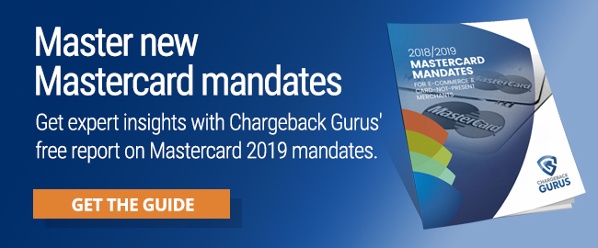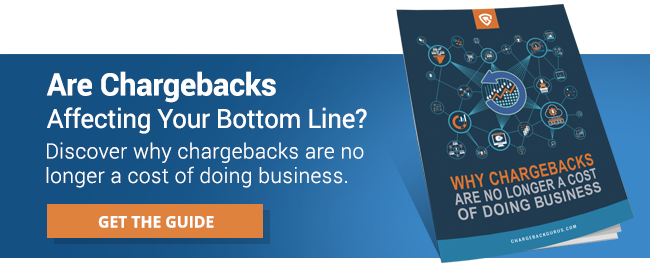Affiliate Fraud — Clean Traffic & Chargeback Prevention
Building a strong sales funnel is a top priority for almost every ecommerce merchant. It’s a competitive world out there, and companies know they must make every effort to maintain as many effective marketing channels as they can, and to structure them in a way that leads the customer’s journey to end in a purchase. So how does affiliate fraud get in the mix ?
It can be a tricky thing to pull off, more art than science, and marketers will use every tool at their disposal to produce the conversions and sales that justify their work. One such tool in widespread use around the web these days is affiliate marketing.
The basic idea behind affiliate marketing is simple: company A (the affiliate) promotes company B (the merchant) on company A’s website or social media platform. When leads generated by company A turn into site visits and sales, company B pays them a commission.
Where chargebacks come into play is when unscrupulous affiliates try to game the system and increase their commissions by artificially inflating the number of leads or by using deceptive marketing practices to trick people who are unlikely to actually want to do business with the merchant into visiting their website. Customers may file chargebacks against the merchant if they make a purchase and later feel misled by the affiliate’s marketing efforts.
How Bad Can Affiliate Fraud Get?
Some affiliates will even go so far as to make fraudulent purchases with the merchant using stolen credit cards, just to earn higher commissions. They don’t care if the cardholder discovers the fraud and disputes the charge—they’ll have already gotten paid by then, and the merchant is left to deal with the fallout.
While creating false leads with bots or scripts (some fraudulent affiliates will spend all day manually clicking your ads to increase their commissions!) won’t typically lead to a chargeback situation, this kind of affiliate fraud can definitely drain your marketing budget while offering nothing beneficial in return.
Fraudsters posing as affiliate sites may also use ads and embedded code to sneak malicious cookies and malware into users’ computers.
Companies engaged in affiliate marketing must have a robust strategy for identifying and preventing affiliate fraud. In many ways, affiliate fraud can be much more harmful to a business than other types of fraud.
A malicious affiliate can do significant damage to a merchant’s brand and reputation, establish misconceptions and set false expectations that can travel across social media and the internet before the merchant even realizes what is happening, and can generate unusable data about customer behavior that can lead to cascading strategic errors in any marketing department that doesn’t yet realize that their affiliate is deceiving them.
And then, of course, there are the chargebacks.
 We already know what can happen when chargebacks go unchecked: lost revenue, mounting chargeback fees, and an ever-increasing chargeback ratio that can cost you your relationship with your payment processor if it exceeds 1%.
We already know what can happen when chargebacks go unchecked: lost revenue, mounting chargeback fees, and an ever-increasing chargeback ratio that can cost you your relationship with your payment processor if it exceeds 1%.
It’s very risky for a merchant to enter into an affiliate marketing program—especially with new or unknown affiliates—if they don’t have a plan in place for recognizing and responding to the early warning signs of affiliate fraud.
Identifying and Preventing Affiliate Fraud
Here are some things to watch out for if you’re concerned that affiliate fraud might be taking place. It’s not always easy to spot—seasoned fraudsters are good at disguising their activity and making themselves look like legitimate sites.
Of course, the best defense against affiliate fraud is to know who your partners are.
When you enter into affiliate marketing relationships with well-established individuals and companies, who have their own reputations to be held accountable to, the chances of them deliberately flooding your site with bots or deliberately lying to your customers is quite small (but not nonexistent—just because you have reason to trust an affiliate at the outset doesn’t mean you shouldn’t scrutinize their activities and verify that they’re representing you properly).
As is always the case in business, whenever you’re making a deal with someone, get it in writing. Carefully review the terms and conditions your affiliate has provided. Make sure, as well, that the affiliate has a copy of your own terms, conditions, and expectations for this business relationship, and don’t hesitate to enforce them if necessary.
Many early signs of affiliate fraud can be read in the data—the visitor logs, IP addresses, network traffic patterns, and other artifacts of digital activity that will bear telltale signs of organic user activity versus artificial, scripted bots.
 However, it is not enough to squint at this data and wait for something blatantly suspicious to pop out at you. Trained IT staff, literate in the various forms of affiliate fraud, should be reviewing this data regularly.
However, it is not enough to squint at this data and wait for something blatantly suspicious to pop out at you. Trained IT staff, literate in the various forms of affiliate fraud, should be reviewing this data regularly.
Remember too that the sunk cost fallacy is your enemy.
Don’t turn a blind eye to shady affiliate practices just because they’ve sent a few good leads your way and you don’t want to waste your investment by terminating the relationship.
If the affiliate is misleading you or your customers and increasing your risk of chargebacks, the bad will outweigh the good eventually, if it hasn’t already. Cut them off and look for marketing partners who will help you stay true to your brand and your values.
Conclusion
If you’re giving your existing affiliate programs the side-eye after reading this, good—it pays to be vigilant—but don’t panic yet. If you feel uncertain that you will be able to catch the signs of fraud before it snowballs into a bigger problem, remember that there is always help to be found when it comes to dealing with challenges like these.
Chargeback management firms like Chargeback Gurus, who have seen it all when it comes to the various permutations of ecommerce fraud, can help you identify and fix vulnerabilities that leave you susceptible to fraud and chargebacks. With the right team in your corner, you can proceed confidently with affiliate marketing and other campaigns, safe in the knowledge that you’ll be able to take quick action to stop bad actors from taking advantage of you and running up your chargeback ratio.
Thanks for following the Chargeback Gurus blog. Feel free to submit topic suggestions, questions or requests for advice to: win@chargebackgurus.com



